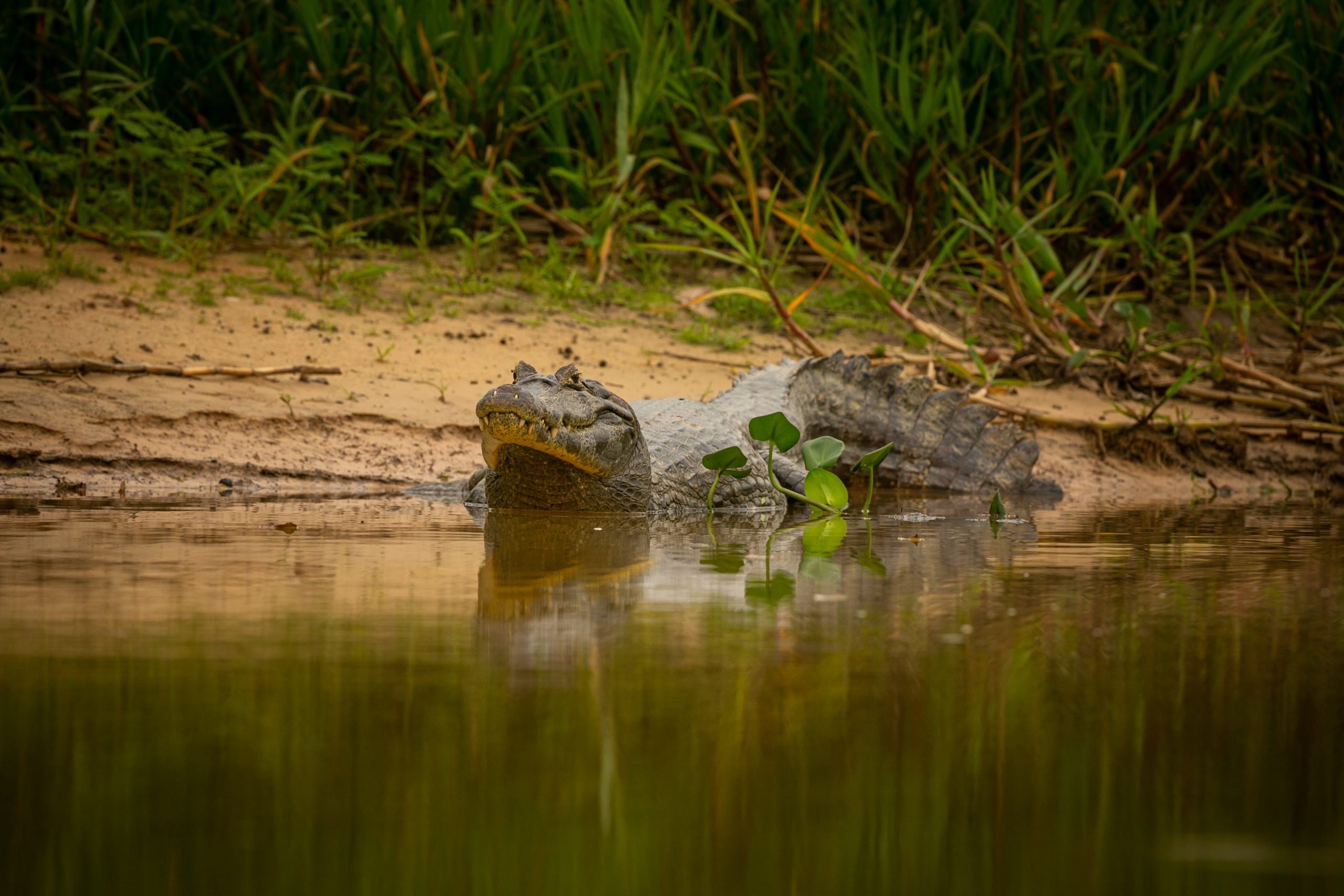The Fascinating World of the Niger Delta Crocodile
Deep within the lush, mysterious wetlands of southern Nigeria lies a creature that’s both feared and revered, a silent guardian of tradition, nature, and balance. This is the Niger Delta Crocodile, The Niger Delta Crocodile: Unveiling Africa’s Hidden Wildlife Treasure, an awe-inspiring animal that embodies the mystique of Africa’s rivers and the rich culture of its people. It’s not just a reptile, it’s a legend living in the waters, a cultural icon, and a vital piece of a thriving ecosystem.
Whether you’re a wildlife lover, cultural explorer, or someone drawn to the hidden gems of Africa, the story of the Niger Delta crocodile is one you don’t want to miss.
Discovering the Habitat: Where These Crocodiles Thrive
The Niger Delta is one of Africa’s most biologically rich regions. It’s a maze of mangroves, swamps, rivers, and creeks, perfect hiding grounds for crocodiles. These reptiles are commonly found in the freshwater and brackish waters stretching across states like Bayelsa, Delta, and Rivers State.
These environments aren’t just crocodile playgrounds, they’re cultural heartlands. Many local communities live alongside these animals, sharing waters, stories, and sometimes even beliefs. It’s a place where nature and humanity are in constant dialogue.
Physical Characteristics: What Makes the Niger Delta Crocodile Unique?
Unlike the massive Nile crocodile, which often grabs the spotlight, the West African crocodile (Crocodylus suchus), common in the Niger Delta, is more reserved and slightly smaller. Adults grow to about 2.5 to 3 meters, with rugged, olive-brown skin that blends beautifully with the muddy waters and mangrove shadows.
They have a broader snout and a more secretive nature, making them less likely to attack humans than their Nile cousins. Their skin patterns, especially in younger crocodiles, feature striking black bands, almost like tribal tattoos that tell a story of survival and stealth.
Behavior and Lifestyle: A Glimpse into Their Daily Lives
Niger Delta crocodiles are masters of patience. They often float motionless for hours, eyes just above the surface, waiting for fish, frogs, or unsuspecting birds. But when it’s time to strike, they move with shocking speed and power.
Despite their fearsome appearance, these creatures are attentive parents. Mothers guard their nests fiercely and even help their hatchlings reach water. Some communities have even witnessed crocodiles carrying their young in their mouths to safety, a tender moment from an otherwise terrifying predator.
Ecological Significance: The Niger Delta Crocodile’s Role in Its Ecosystem
The presence of crocodiles is a sign of a healthy river system. As apex predators, they control populations of fish, amphibians, and smaller animals, maintaining a crucial ecological balance.
By cleaning up dead animals and controlling disease-spreading species, they serve as natural sanitizers. Their nesting behavior even shapes the landscape, helping to oxygenate soils and manage wetland biodiversity. In short, if the crocodiles are thriving, the Delta is alive.
Conservation Challenges: Threats and Risks Facing This Hidden Treasure
Unfortunately, the Niger Delta’s crocodiles are under serious threat. Pollution from oil spills, deforestation, urbanization, and illegal hunting are shrinking their habitat and endangering their survival.
Add to that the effects of climate change, rising sea levels, saltwater intrusion, and unpredictable rainfall, and it becomes clear that the survival of these reptiles hangs in a delicate balance.
What’s worse, because they’re less studied than Nile crocodiles, we don’t even know how many are left. Their invisibility might be their greatest danger.
Human-Crocodile Interactions: Myths, Facts, and Coexistence
In many Niger Delta communities, crocodiles are seen as ancestral spirits, guardians of water, and symbols of protection. In villages like Okpai and Biseni, crocodiles aren’t feared, they’re family. Killing one is taboo. If one dies, it receives a funeral. If one is accidentally killed, the killer must replace it with a live crocodile. The Niger Delta Crocodile: Unveiling Africa’s Hidden Wildlife Treasure.
Such beliefs have preserved these animals for generations. But in other parts of the Delta, fear and misunderstanding can lead to conflict. Education and storytelling are powerful tools in bridging this divide, helping people remember the value, not just the threat, of their ancient neighbor.
Research and Studies: What Scientists Are Learning About These Crocodiles.
Only in recent decades have researchers begun to distinguish the West African crocodile from the Nile crocodile. Genetic studies reveal that the Niger Delta crocodile might even be a unique population with distinct behavior.
Local conservationists and global researchers are teaming up to track migration patterns, nesting sites, and health status. These insights help guide smarter conservation, tailored to this specific landscape and its cultural values.
Global Significance: Why the Niger Delta Crocodile Matters to the World
Why should a traveler from Paris or a student from Tokyo care about crocodiles in the Niger Delta?
Because their story is a universal tale of balance, between humans and nature, modern life and tradition, development and preservation. Their survival speaks to larger global issues: biodiversity loss, the power of indigenous knowledge, and the richness of African heritage.
The Niger Delta crocodile is not just an African treasure, it’s a global symbol of what we risk losing, and what we still have time to protect.
Conservation Efforts: Protecting and Preserving the Niger Delta Crocodile
Thankfully, there’s hope.
Local NGOs and international partners are now working with community leaders to create protected zones, promote eco-tourism, and encourage youth participation in wildlife monitoring.
Some areas now host “crocodile festivals”, blending conservation with culture, bringing tourists face-to-face with tradition, nature, and the warm hospitality of Delta communities.
When conservation is rooted in culture, it thrives.
Conclusion: Embracing and Protecting Africa’s Hidden Wildlife Treasure
The Niger Delta crocodile is more than teeth and tail. It’s a living heritage, a biological wonder, and a cultural storyteller. To protect it is to protect a piece of Africa’s soul, and to open a door of discovery for the world.
For travelers, this is an invitation.
For conservationists, a challenge.
For Africa, it’s a call to celebrate and defend what makes it uniquely rich, its wildlife, its people, and their timeless bond.
The Niger Delta Crocodile: Unveiling Africa’s Hidden Wildlife Treasure





